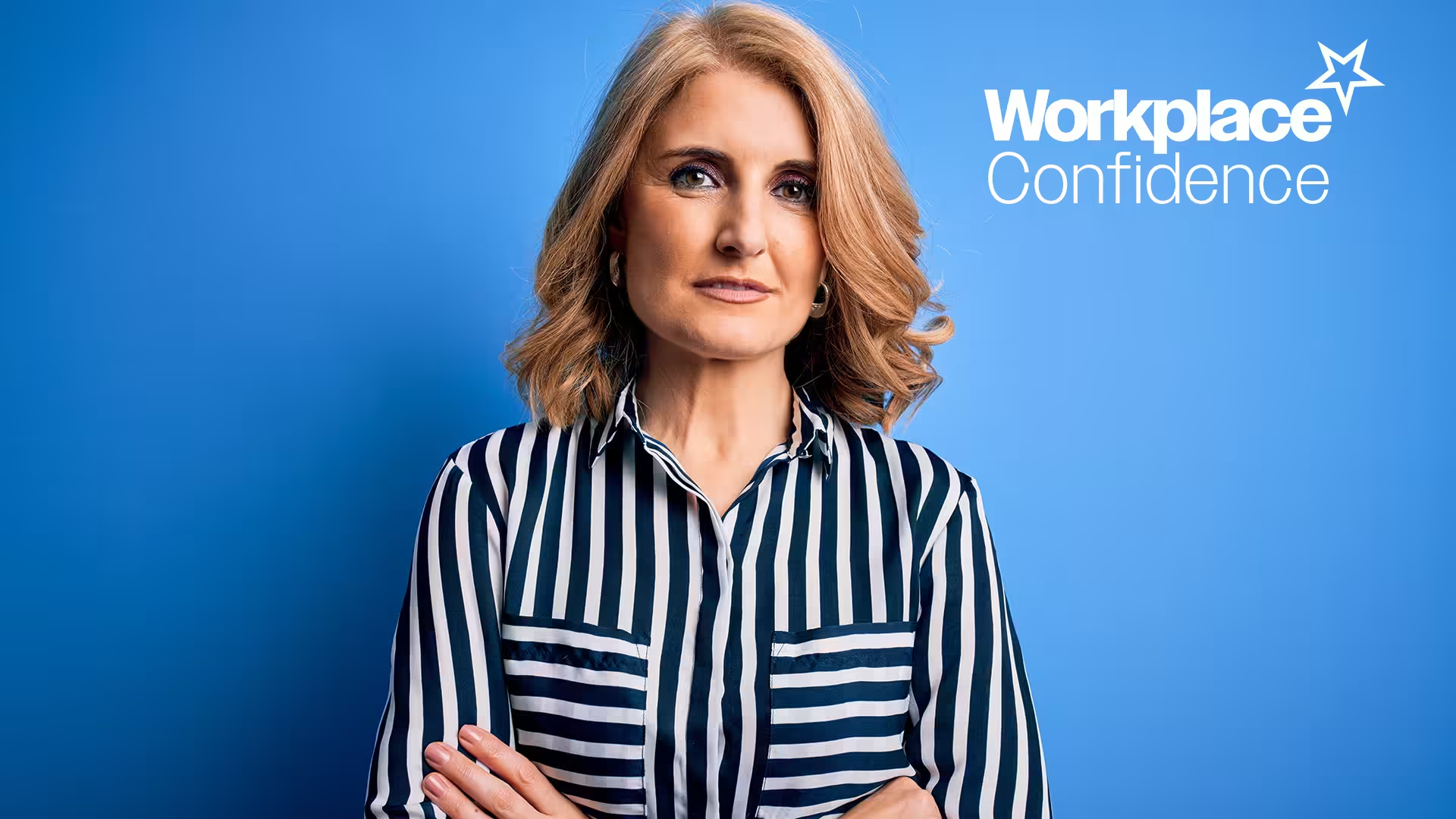Workplace mastermind groups
Workplace mastermind groups:
Download my FREE step-by-step guide for people professionals
Mastermind groups in the workplace are a dynamic way to unlock potential and cultivate a supportive community. Get started with my guide:
Introduction: What is a workplace mastermind group?
I want to share an idea with you that's commonly associated with business owners. Actually, I think it's something that should be more regularly used in the workplace. That is, mastermind groups at work so your people can solve their problems confidently and build wider networks across the organisation.
There are loads of reasons why they're brilliant, and often their outcomes are phenomenal in a way that you'd never expect. I'll go into those in a little more detail in a minute, but a mastermind group is sometimes also known as an action learning set or peer-to-peer mentoring.
I like the word 'mastermind' because it sounds important and powerful, and like everyone's going to be super clever there. They don't have to be. They just have to be like-minded peers who are ambitious, keen, aspirational, want to solve problems, and develop in their role—all the good stuff that you want them to do anyway.
And the excellent thing about it is that it's very light on resources. So, I would go so far as to say it's free, apart from a bit of time. So, why not set one up and think about mastermind groups at work?
Why should you set up a workplace mastermind group?
Why are mastermind groups at work so great? I can't believe they're not used more often and more widely, to be honest. Recently, I had a cohort on my group coaching programme for women leaders who went on to keep the gang going, if you like, in a dedicated mastermind group.

Bit Famous works with businesses and organisations to help them communicate with confidence.
By Penny Haslam
MD and Founder - Bit Famous
FREE resources for leaders and people professionals from Penny Haslam and Bit Famous
Where people professionals share the great work they do!

I like the word 'mastermind' because it sounds important and powerful, and like everyone's going to be super clever there. They don't have to be. They just have to be like-minded peers who are ambitious, keen, aspirational, want to solve problems, and develop in their role—all the good stuff that you want them to do anyway.
And the excellent thing about it is that it's very light on resources. So, I would go so far as to say it's free, apart from a bit of time. So, why not set one up and think about mastermind groups at work?
Why should you set up a workplace mastermind group?
Why are mastermind groups at work so great? I can't believe they're not used more often and more widely, to be honest. Recently, I had a cohort on my group coaching programme for women leaders who went on to keep the gang going, if you like, in a dedicated mastermind group.
Workplace mastermind groups share common goals, challenges and insights
They decided they wanted to continue supporting each other. What happened is they're not in the same departments. They're in the same organisation, yes, but at the same level. So, heads of, managers of, and they all had similar ideas around what they wanted to achieve with their careers. And they all shared similar challenges, even though they were very separate in their departments and their specialisms.
What that got for them was, well, for some of them, job success. So, they felt more confident in applying for a job, felt more supported. I know that some of them helped each other with their application forms, for example.
Expanding professional networks with workplace mastermind groups
Another aspect was that difficult conversations felt easier because you had a group of buddies to go, "Well, yeah, maybe put it like this. You know, don't be afraid of saying that." And also, they had the confidence and the enjoyment of celebrating their successes and sharing their value and their worth.
It's peer-to-peer mentoring, essentially, but without it being formalised heavily, without somebody instructing others to join and making them do it. It's very much an organic group that comes together and instantly, you've got a network.
You've got a network of six or eight people across a wider enterprise, perhaps, and you're getting away from that awful stuck situation where you've got people working in silos who don't know each other, who haven't seen opportunities on the other side of the building, or the other side of the world. And you can't develop talent if people are just stuck in their roles and their departments, can you? It's harder, and ultimately, people get to set goals and be held accountable, and we all need a bit of that, don't we?
How do you encourage colleagues to set up a mastermind group?
Now the practical side of things. How to get your people to set up a mastermind group in the first place, and we'll look at how to run one as well on the day of the meeting.
Start with two key members with shared challenges, then allow it to grow
So first of all, encourage a couple of colleagues. They might know each other, they might not. It doesn't matter. But you know that they're at a similar level. They've maybe got similar challenges. Get them together and put the idea to them that it's permissible to set up a group where they can work through their own ideas, solve problems, and build their network. Fantastic.
Workplace mastermind groups can benefit all colleagues
They then go out and source four or six more people to join their gang. It's as simple as that. Now, it doesn't have to be leaders. It can be any group of people. I'd like to encourage diversity at this point. If you can encourage people to get away from the old boy or old girl network of similar types of people, then the group would be stronger for it, for sure.
Let the members of the mastermind group decide on the frequency of meetings and how to communicate
So that's the starting point. And then the mechanism of it is really about setting a time in my mastermind group.
I belong to one that I set up, have been in it for five years now, and get loads of the benefits I've talked about. We set our year-ahead dates. We meet every two months and alternate between meeting online on a Zoom or Teams call and meeting in person. We've found a cafe that doesn't mind us hanging around all day and does an all-day breakfast as well. We meet there for a full day in person.
Deciding the rhythm you meet, and for how long, is really important. That's your group. The mechanism of communication on WhatsApp, the regularity of meetings to be decided, but every two months or every month is a really good idea. And then in the meeting itself, well, that's up to you. That's up to the members.
Start each mastermind group meeting with a social catch-up
But how I've worked it in the past is that we spend half an hour socialising because it's like, "Hi. How are you? How are you feeling today? How did you get here?" You've got to get into the vibe. You can't just get to business straight away, in my view. And then the time that you've got remaining, divide by the people that you've got around the table or on the call and ask everyone to stick to that time.
Make sure everyone's voice is heard
You'll maybe get somebody to chair it or keep an eye on the timer as you go along. Typically in my group of five or six attendees in our mastermind group, we'll have between 15 minutes and 45 minutes, depending on our meeting duration, to talk about our challenges.
Some people will run over. Some people will run under. It might be that someone goes, "Well, actually, I don't really have anything today, but I'd like to contribute." That's fine as well. You might find that two or three people have similar challenges, in which case you're super efficient.
They express their challenge, their frustrations, what they'd like to achieve with it, and what they think the solution is already. And then the rest of the group listen really well and then ask questions. Really nice follow-up questions like, "So what have you tried already? What do you think would work if the situation was reversed? How would that feel?" And then it's time to wade in with advice. "What you wanna do is," or "If I was you, I would," and then to sort of offer your experience. "In my experience, I've tried that in the past. Do you think that would work?"
Mastermind groups generate creative solutions to problems and hold members accountable
And it's lovely. And all of a sudden, the windows open in your mind and ideas and light bulbs are going off all over the place. And sometimes it's a flash of the blinding obvious that you go, "Oh, I hadn't thought of that, of course."
And then, if you want, people can check in with you as you go along, "How did it go last week with that difficult conversation? Did you manage to move the dial on this?" And you're held gently accountable for your actions and your aspirations. That's it. And then you say goodbye.
I'm a huge fan of mastermind groups
You meet up next time. It's a winner. It really is a winner. I can't tell you how exciting—I mean, you can probably tell how excited and motivated I am around mastermind groups at work. I absolutely love helping people set them up, making sure that it's congruent and it's going to serve them well. And, you know, showing people how to have those really important conversations, and then people are off and running.
They're absolutely going to smash it, and it's a really effective way to solve problems and build a network is through the power of a mastermind group at work. Have a go. Why not?
Get support in creating workplace mastermind groups from Bit Famous
If you would like some support or some training on how to get your people set up in mastermind groups at work so they can confidently solve problems and build networks, then get in touch. Contact hello@bitfamous.co.uk

Our group executive coaching for women can help.
Are you seeing fewer women in your organisation who have real impact and influence?
The Impact, Influence, and Confidence Programme is designed with your women in mind - to engage, inspire and build self-belief.









